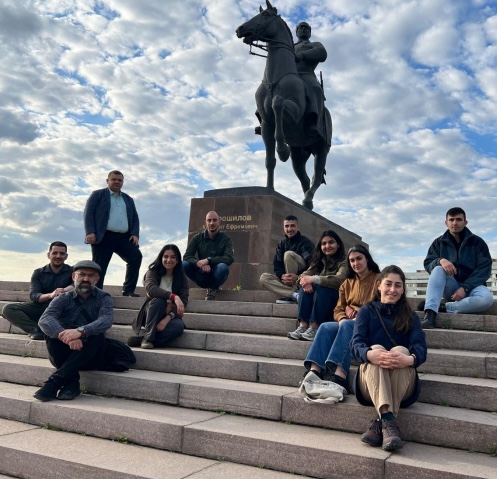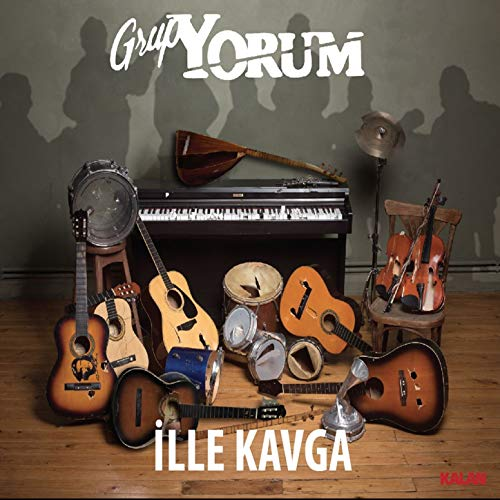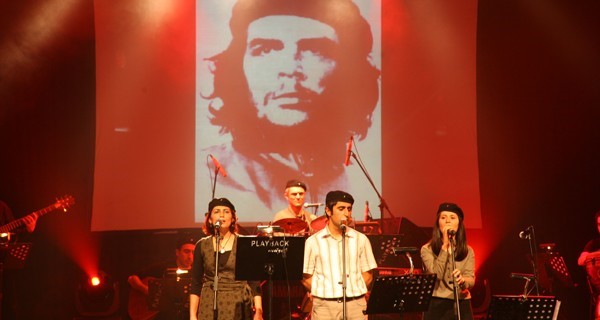Grup Yorum
Musician
Turkey

Yet, since their inception, Grup Yorum’s evocative and critical songs have attracted the ire of the government. Repeated attacks on the group have included arrests of members, reports of abuse against detained members, bans on the sale of their music and concerts, and even the detention of audience members at their shows. Since the failed coup d’état in 2016, attacks on the band have reportedly increased in frequency and severity: over thirty members have been detained, with more than eleven currently serving prison sentences, six are named in the Ministry of Interior’s Grey List of Turkey’s Most Wanted, and two are asylees in Europe. The İdil Cultural Centre, run by several band members, has been raided by police nine times in the last two years alone. During raids, the band’s instruments and books have been damaged or stolen and members have been arrested. Their polemical music and strong involvement in leftist political movements have led to charges of allegiance to groups like the outlawed DHKP-C, which is considered a terrorist group by the United States, European Union, United Kingdom, and Turkey.

The cover image of İlle Kavga shows the band’s instruments after they were destroyed during a 2016 raid on İdil Cultural Centre.

Grup Yorum in concert.
Apart from singing original songs, the group has also recorded renditions of revolutionary anthems from around the world, such as “Çav Bella” (1994), a haunting rendition of the popular Italian folk-song of resistance “Bella Ciao.” World revolutionary music, such as Nueva canción and Anatolian folk music, has informed Grup Yorum’s aesthetic and philosophy. Grup Yorum considers their work to be guided by and contributing to the legacy of Pir Sultan Abdal, Nikola Vaptsarov, Victor Jara, and Nâzım Hikmet, artists and poets across time who used their voices to fight for justice and faced violent backlash as a result. They are known for performing with socialist posters as their backdrop, dressing in simple coordinated colors of white, with red scarves around their necks. Its membership is constantly expanding and changing, in part due to the barrage of attacks the group faces, with concert line-ups ranging from full orchestras to small low-key performances.

Grup Yorum is known to perform with socialist posters as their backdrop.
Since May 16, 2019, five of Grup Yorum’s imprisoned members have undertaken a dangerous hunger strike. Now spanning over 180 days, the strike has left the group members in perilous condition. Through their strike, they demand the release of arrested members, the dropping of charges against the group, an end to police raids of their cultural center, the removal of Grup Yorum members and supporters from the Ministry of Interior’s wanted “terrorist lists,” and the removal of the ban on Grup Yorum’s concerts and performances in public squares. You can learn more about their cause through their English and Turkish social media channels and sign an online petition in solidarity with their hunger strike.
UPDATE: On September 3, 2020 flute player for Grup Yorum Ali Aracı was released after being behind bars since June 2019.
UPDATE: On April 3, 2020, Grup Yorum member Helin Bölek died after a 288 day hunger strike.
UPDATE: On February 24, 2020, on the 252nd day of his death fast, Grup Yorum member Ibrahim Gökçek was released from prison.
UPDATE: On January 3, 2020, Grup Yorum member İbrahim Gökçek turned his 199 day hunger strike into the beginning of a death fast.
UPDATE: On November 29, police conducted a raid of Grup Yorum’s cultural center, destroying contents and arresting three members, Sultan Gökçek, Bergün Varan and Tuğçe Tayyar.
UPDATE: On November 20, 2019, two members of Grup Yorum who had been imprisoned for almost two years and on hunger strike for over 180 days, Bahar Kurt and Helin Bölek, were released.





